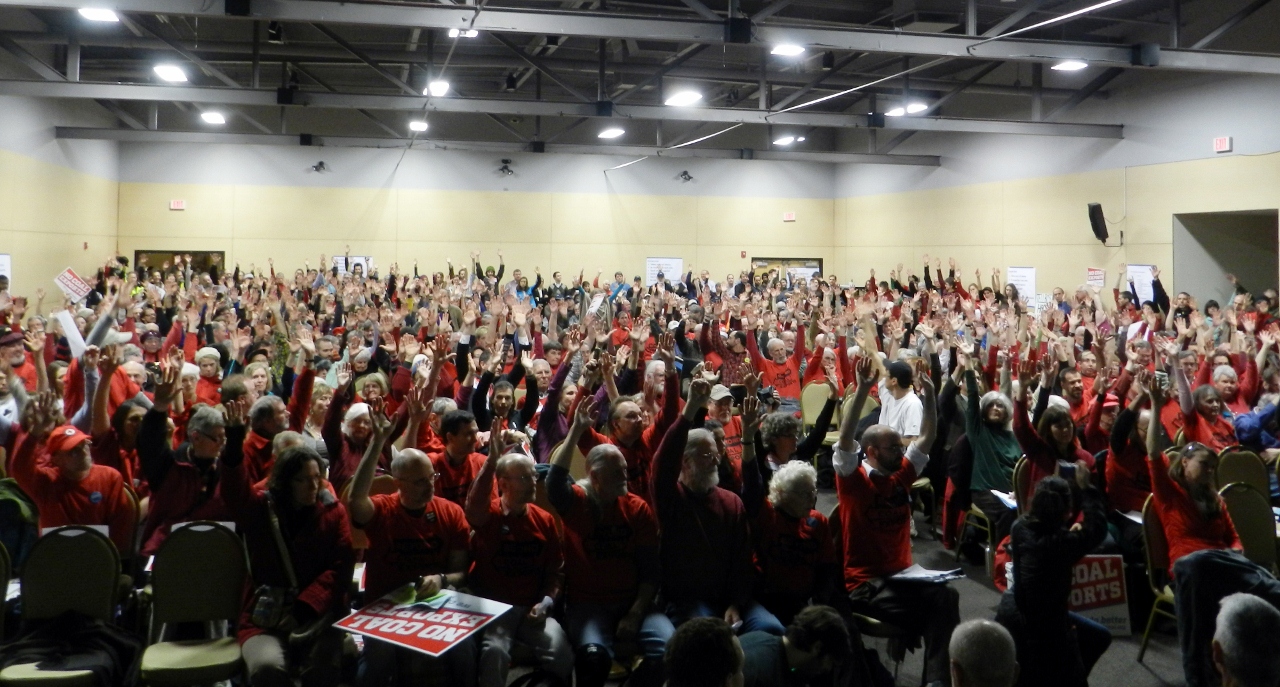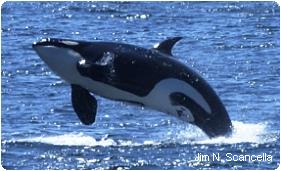We have much more to do and your continued support is needed now more than ever.
Tanker Accident at Vancouver Coal Terminal – A Sign of Things to Come?
People in Washington and Oregon have been turning out in force to protest the coal industry’s plans to send millions of tons of dirty fuel through their backyards, and an incident today just added to the laundry list of reasons coal is a bad bet. From Metro News CA:
Efforts to stop more coal from falling into the Georgia Strait are underway after a massive tanker crashed through a coal exporter’s conveyor belt at Roberts Bank in Delta early Friday.
The 180,000 tonne Cape Apricot – a ship too large to traverse the Panama Canal – destroyed more than 100 metres of the belt leading to Westshore Terminals’ largest loading berth at 1 a.m., dumping about 30 tonnes (one third of a rail car) of coal sitting on the belt into the water.
“You’re not expecting a ship to ram through your coal way,” Westshore spokesman Ray Dykes said Sunday. “It’s like when a car goes through a restaurant window – it’s like we own the restaurant.”
Westshore Terminals, just across the border in Vancouver, is the biggest coal port on the West coast. You can see a photo here (I’m trying to get permission to include it in this blog) where the freighter sheared right through a long conveyor belt that stretches from the dock to the shore. The coal spilling into the water is visible even from several hundred feet above…drifting down-current toward who knows where. The toxins in the coal will pollute the water and harm wildlife, not to mention causing a massive headache for the port authorities.

Tanker accidents are another heavy risk of exporting coal, alongside train wrecks, pollution, wildlife impacts, and dozens of other problems. And if the coal industry gets its way, we’re talking about a LOT of tanker traffic in a pretty small space — it takes more than a couple of boats to transport 150 million tons of coal each year, and that means more accidents, more collisions, and more coal spills.
What does that mean in terms of our own energy security? What does it mean in terms of our efforts to reduce greenhouse gases and shift to a low-carbon future?
I would argue [the federal government is] really underpricing coal, which means we are subsidizing the development of coal-fired plants in Asia. The way the wind blows, all that mercury is going to blow back this way.
 He’s right, of course, and it’s great to see that someone in authority is taking these problems seriously. But the industry and too many people in the federal government continue to plug up their ears and say, “It’s no big deal! We know what we’re doing so y’all can just go home and relax.”
He’s right, of course, and it’s great to see that someone in authority is taking these problems seriously. But the industry and too many people in the federal government continue to plug up their ears and say, “It’s no big deal! We know what we’re doing so y’all can just go home and relax.”
That’s not going to cut it. If the industry knew what they were doing, we wouldn’t have accidents like the one in Vancouver, or traffic jams caused by malfunctioning coal trains, or deadly derailments. Orcas and other marine life in Puget Sound are at particular risk, and we need your help to keep our coastlines clean and our communities safe — visit NWF.org/coalexports to learn more, and take action below!
![]() Speak up now! Tell the White House to say NO to coal exports in the Pacific Northwest.
Speak up now! Tell the White House to say NO to coal exports in the Pacific Northwest.




















